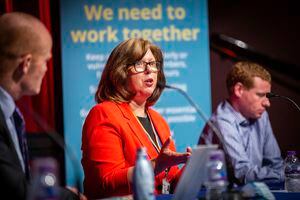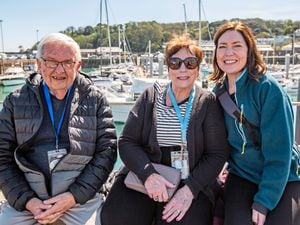Over-65s can take part in wider range of activities
THE over-65s can now take part in a wider range of activities as long as they comply with wider lockdown rules, Public Health has said.

Previously, Public Health had advised the over-65s to limit contact with others as much as possible to lower the risk of infection but this advice has been withdrawn following an entire week with no new Covid-19 cases detected.
Dr Nicola Brink explained the rationale behind the original advice at yesterday’s Covid-19 briefing.
‘We were aware that over-65s as a group tended to become more ill and require more hospital facilities and we were looking at our hospital capacity, but also for those people personally, they were more likely to become severely ill,’ she said.
‘From our point of view, now we’re very happy to relax those guidelines for the over-65s.
‘We feel that with the activity we’ve got in the hospital, with the evidence we’ve got within our community, we feel it is entirely reasonable for those over-65s to partake in what activities they want to within the guidance of lockdown.’
Dr Brink added that it was now up to the individual to assess their own situation and decide what was safe.
‘We do add a note of caution: people have to be aware of the risks, they have to be aware of the fact that certainly if they’re in their 70s and 80s they are more vulnerable to getting more severe infection, but we believe that people are entirely capable of thinking about that and making that judgement.’
Dr Brink said that it was not so simple when it came to those who were shielding due to certain medical problem such as certain types of chemotherapy, or who have had organ transplants and are at far higher risk as a result, irrespective of their age.
Shielding is much more restrictive than social distancing and means not leaving your house and avoiding other people.
Some individuals have struggled with shielding and in these cases they have been encouraged to discuss the risks with a healthcare professional before making their own choice about whether they continue to shield.
Dr Brink said that, given the increased risks, it was essential for people to make an informed decision once they had received all the facts from their healthcare professional. In many cases, after these discussions the individual would resume shielding, she said.





